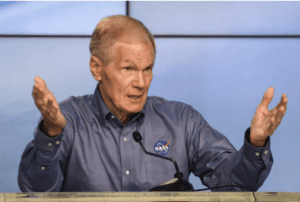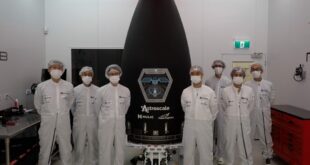
Budapest / Washington, 16 November 2021. – The Russian Federation conducted a destructive test of a direct-ascent anti-satellite (DA-ASAT) missile against one of its own defunct satellites. The resulting space debris endangered the crew on the International Space Station (ISS).
The test has generated over 1,500 pieces of trackable orbital debris. With further collisions, hundreds of thousands of pieces of untraceable (under 10 cm) orbital debris will probably be generated. The space junk created will remain in orbit for potentially decades and threaten infrastructure both in space and on Earth.
The events “clearly demonstrate that Russia, despite its claims of opposing the weaponization of outer space, is willing to jeopardize the long-term sustainability of outer space and imperil the exploration and use of outer space by all nations through its reckless and irresponsible behavior,” the U.S. Department of State said in a statement.
“We call upon all responsible spacefaring nations to join us in efforts to develop norms of responsible behavior and to refrain from conducting dangerous and irresponsible destructive tests like those carried out by Russia.”
NASA reported that the seven-person crew of the ISS had to take shelter in their return ships. Currently, two Russian cosmonauts, three NASA astronauts, one ESA astronaut and one JAXA astronaut live and work on the ISS. In addition to this, there are three crew members on board of China’s Tiangong Space Station.
NASA and the U.S. Space Command will continue monitoring the debris to ensure the safety of their crew in orbit. The U.S. Space Command will also work to ensure that all space-faring nations have the information necessary to safeguard their on-orbit spacecraft.
 SpaceWatch.Global An independent perspective on space
SpaceWatch.Global An independent perspective on space




